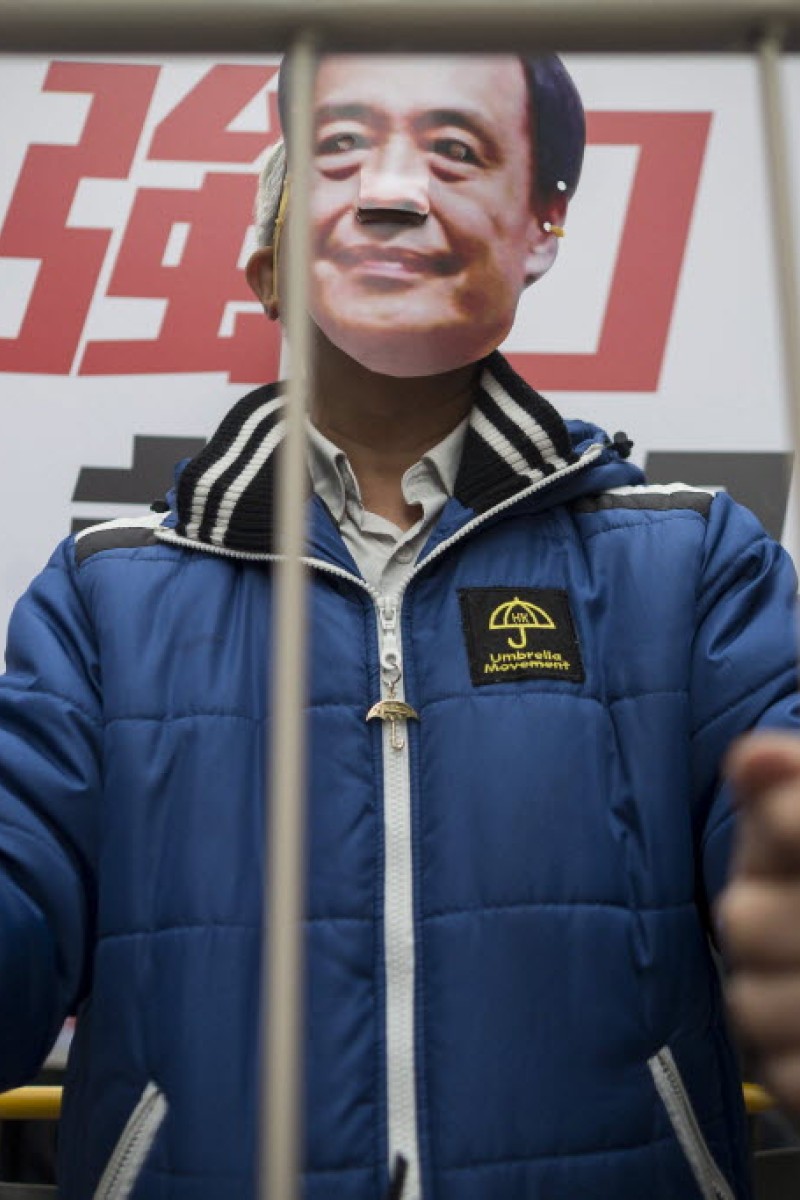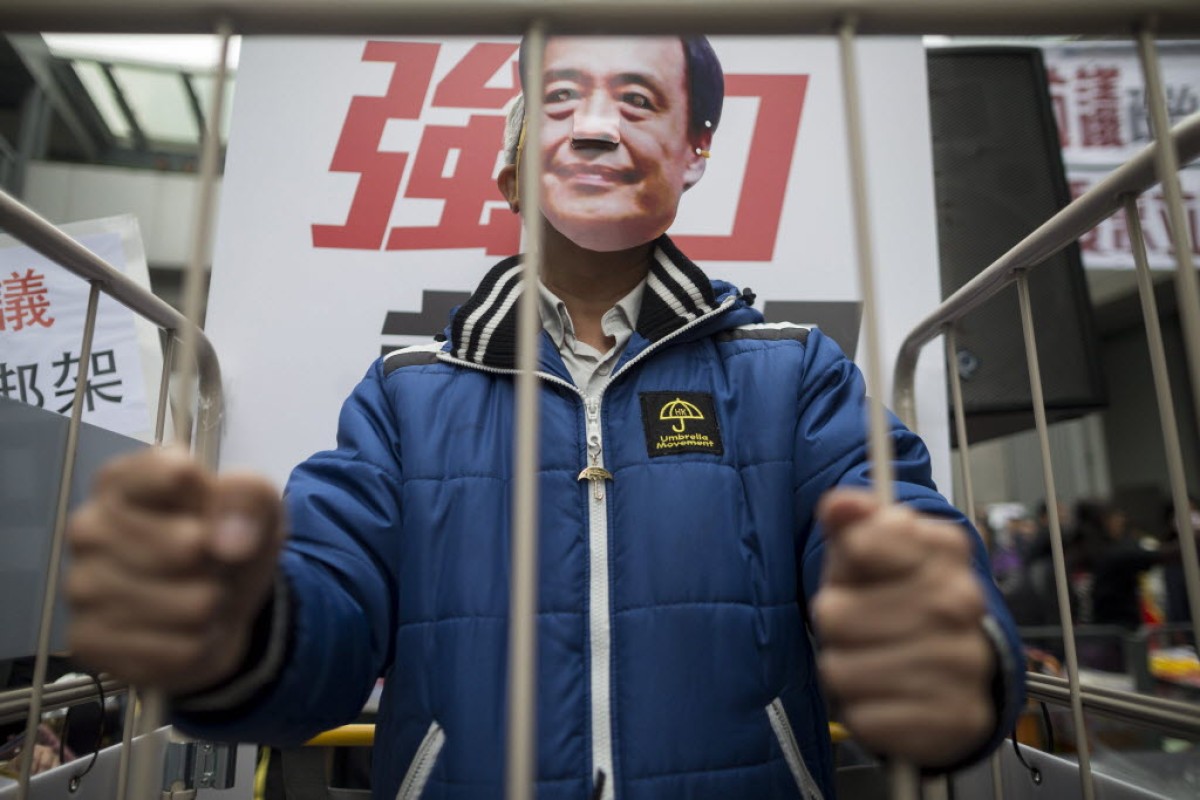
Is the media misleading us? Why we shouldn’t believe everything we read in the news
 A protester wearing a mask of missing bookstore shareholder Lee Bo stands behind bars during Sunday's protest.
A protester wearing a mask of missing bookstore shareholder Lee Bo stands behind bars during Sunday's protest.The news of the missing booksellers has a lot of people talking about the mainland’s censorship of political publications in Hong Kong, and whether Hong Kong is as “free” as we think it is in terms of freedom of speech. However, I would like to focus on the TVB news reports that sparked controversy and debate online last week.
As an aspiring journalist, I have put a lot of thought into the role of the media. In the case of Lee Bo, TVB put legislator Ng Leung-sing’s blatant accusation of a certain “Mr Lee” sneaking into the mainland for prostitution into its news report headlines. It is the media’s responsibility to report the happenings during Legislative Council meetings to the general public. The way it is presented, however, may give an impression that the content of the statement is magnified, rather than questioning Ng Leung-sing’s credibility. In comparison, i-Cable News included the setting and flow of the meeting and statements of many more legislators in the meeting, portraying the incident in a more balanced way.
While the TVB controversy provoked outrage from citizens, and 4,000 complaints were sent to the company, the incident reached a magnitude that Ng Leung-sing had to step up and apologise to the public for his irresponsible statement. Whether TVB was the sole cause of the apology is debatable. But many netizens commented that older generations believed the news reports without much thought.
Of course, news isn’t about pleasing viewers; but it’s important to think about how information is portrayed, as it could lead to different versions of the truth, and in some cases, mislead the public.